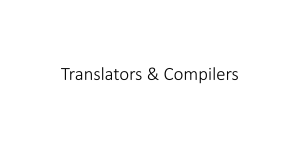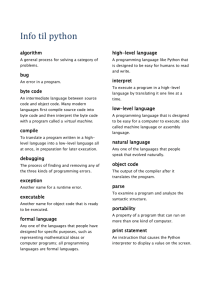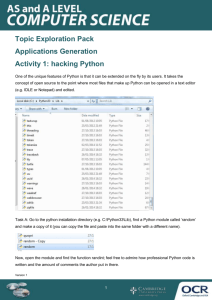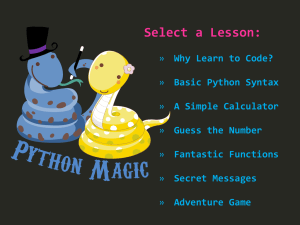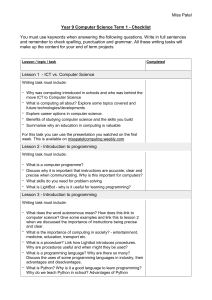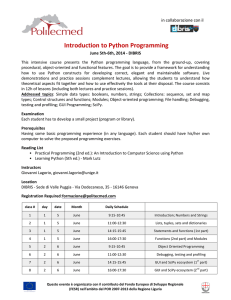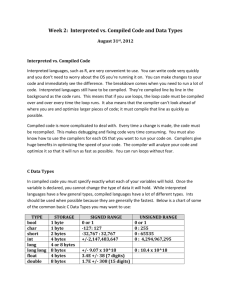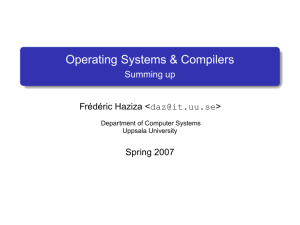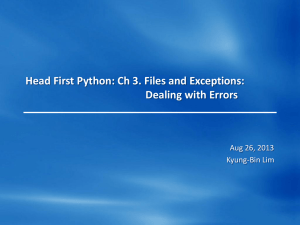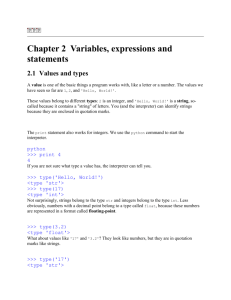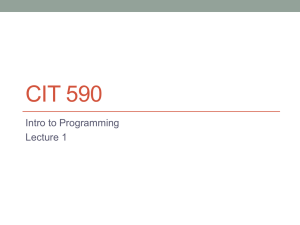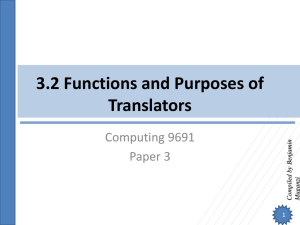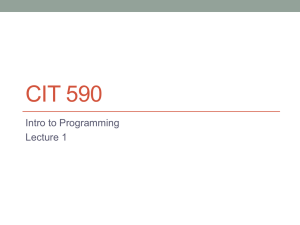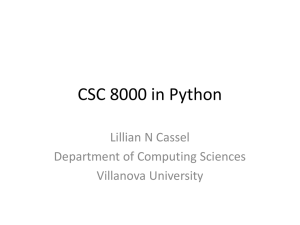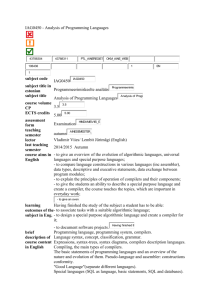Compilers and Interpreters
advertisement
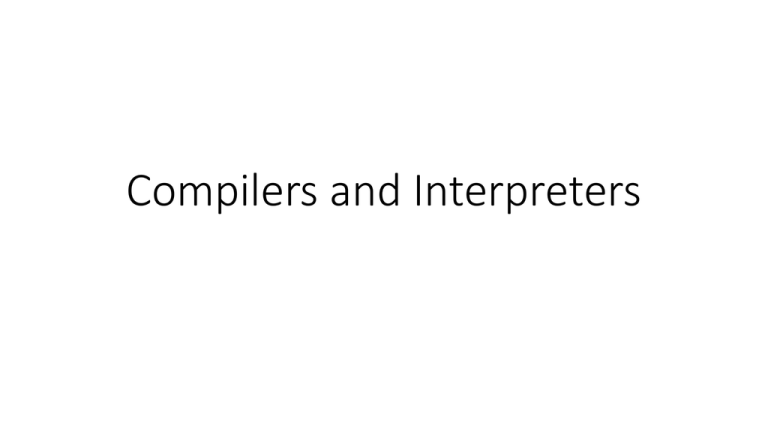
Compilers and Interpreters Translation to machine language • Every high level language needs to be translated to machine code • There are different ways to do it • Two main ways are compilers and interpreters • What’s the difference? • Compilers are more thorough, generate faster executables and the executable is easier to distribute • Interpreters are more dynamic, are easier to use in the development stage of a program A compiler • Compilers are more thorough • When they translate source code to machine code (object code) they translate (ideally) the entire program • If they encounter a syntax error, they report it but they also try to continue the translation process • Compiling a buggy program might cause hundreds of error messages (compilers are easily confused!) • Programmers learn to fix the first one reported then try another compile • When a program is successfully compiled, there exists a stand-alone file which has the executable code in it, ready to run by giving it to the CPU Interpreters, on the other hand, • Interpreters are more “dynamic” • They translate a statement at a time, then hand the resulting machine code to the CPU which executes it • Then they translate the next statement of the program, give it to the CPU which executes it • And this process continues until the program is over OR a syntax error is encountered • The executable code is not saved in a runnable form, it is generated on the fly and mostly discarded when the program is done • The FIRST syntax error the interpreter runs into ends the program execution process right there. No other code is translated at all. Distributing programs • A compiled program has an exe file, which can run on any computer that has the right CPU – the computer does not have to have the compiler application installed • An interpreted program NEEDS the interpreter available to run, so if you give a copy of your program to a friend, they will need to get Python also in order to run your program Speed of execution • Compiled programs have complete executable files, they don’t need any more translation – they run fast • Interpreted programs need to have the interpreter available and they will be translated every time the program is executed – they are slower Implications for Python • In an interpreted program, if a statement is not executed, it is not translated • Which means if there is a syntax error in the program, it will not be detected until that particular part is executed • Which means TESTING is very important! • Example: a function definition in the program has a syntax error in it, but the function is not called when the programmer is testing the whole program – that error will NOT be detected • So you must be thorough enough in your testing to make sure all your code gets executed at least one time! More implications for Python • There are languages which have only one or the other, not both, so you use what you have • Python is usually interpreted, the interpreter is given away for free • There are Python compilers available • Most programmers like Python for being quick to write a program in • They use Python to develop the program, then compile it to distribute it (or sometimes convert it to a compiled language like C for speed)
